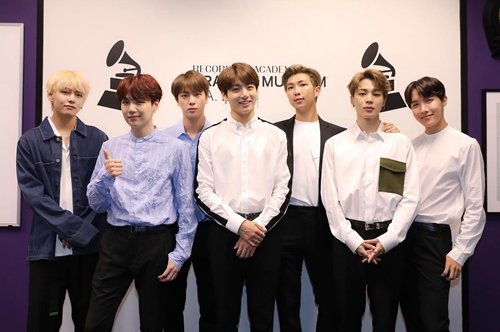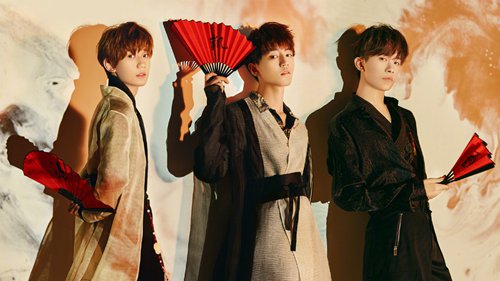August 24, 2018, was an important date for fans of idol groups both in China and South Korea. On that date, TFBoys, a popular Chinese boy band made up of Wang Junkai, Roy Wang and Jackson Yee, held a live concert in Beijing celebrating their fifth anniversary, while the South Korean band BTS released their newest album Love Yourself: Answer, the third record in their Love Yourself series, following last year's Love Yourself: Her and May's Love Yourself: Tear.

K-pop group BTS (Photos: IC)
The South Korean band's latest two albums, Answer and Tear, both debuted at No.1 on the Billboard 200. This October, the band will be bringing their Love Yourself tour to New York.
Heading abroad
Though two bands have successfully built huge fan bases, fans of TFBoys are mainly concentrated in China while BTS has a more global fan base.
"BTS is definitely much more popular than TFBoys. Many of my foreign friends are fans of BTS, but hardly any of them know TFBoys. I think TFBoys is only popular in China," Chinese netizen Yongyuandetiaoban noted on Chinese Q&A Baidu Knows.
According to Hanliu (pseudonym), a Korean culture expert, BTS' huge success comes down to four factors: "good marketing, brand new theme songs, overall expression and having excellent producers."
Formed in 2013, BTS belongs to BigHit Entertainment. While BigHit is a smaller company, it has worked hard to make the boy band famous.
"BigHit Entertainment had limited finances to support their boy group, which means that they needed to find alternate ways to market them, and they did. After producing new songs, they uploaded music videos to websites such as YouTube and NAVER and several mobile entertainment platforms," Hanliu told the Global Times in an email interview.
"In this way, they found a way to break through the boundaries dividing idols and fans. Whereas Chinese idols only appear on Chinese platforms such as iQiyi, which makes it difficult for them to become popular abroad."
Another difference comes down to their music.
BTS, a group that targets the teenage demographic, writes songs about resistance and being fearless in the face of oppression. The Love Yourself albums are more like different episodes of the same TV series in that they all have a very similar overall theme.
"BTS' songs maintain consistency, which is a great achievement by the A&R [artist and repertoire] division, the department in charge of recording artists' artistic development," Hanliu explained, adding that BigHit's A&R division has played a critical role in increasing BTS' influence.
"In South Korea, A&R divisions usually create something that is cliché and boring, but BTS' A&R division has established a certain theme and storyline, which makes the band's music interesting and full of meaning," said Hanliu.
The repertoire of TFBoys, on the other hand, sticks to songs about school life and sweet love. Their music videos also play it safe, which can make them feel a bit too simple and monotonous.
"TFBoys are popular in Vietnam, and have some influence in Japan and South Korea, but they still have a long way to go to open the door to the West," Linling, a netizen wrote on Chinese Q&A platform Zhihu.
In addition, good producers and excellent marketing are also key factors.
"South Korean groups cannot succeed only by producing good music, they need to present an eye-catching image in other areas as well such as their clothing, dancing and appearance," Hanliu noted.

Chinese boy band TFBoys
Facing criticism
The two groups, as well as many other boy bands in both countries, do share some similarities, mainly that they have all been criticized as being "too feminine."
This criticism reached a peak in China over the summer after China Central Television (CCTV) aired educational program First Lesson. Several Chinese idols appeared on the show as hosts, leading to many Chinese netizens to complain that the show was trying to push "feminine boys" on audiences.
"South Korean has a diverse culture. You know about those beautiful men on TV, but you can also see strong men in sports like boxing. The same goes for here in China. Entertainment companies are willing to push beautiful boys for commercial purposes, but they should not be presented as part of mainstream culture like CCTV did," Yanwulie, another Zhihu user, wrote.
Fans of these idols, however, have mainly dismissed these criticisms.
"Some people who think of themselves as 'real men' are just showing their male chauvinism," Zhihu user Geiwofengli commented.
"You have the right to hate them, but you have to show respect," netizen Shawn Li noted on Sina Weibo.


